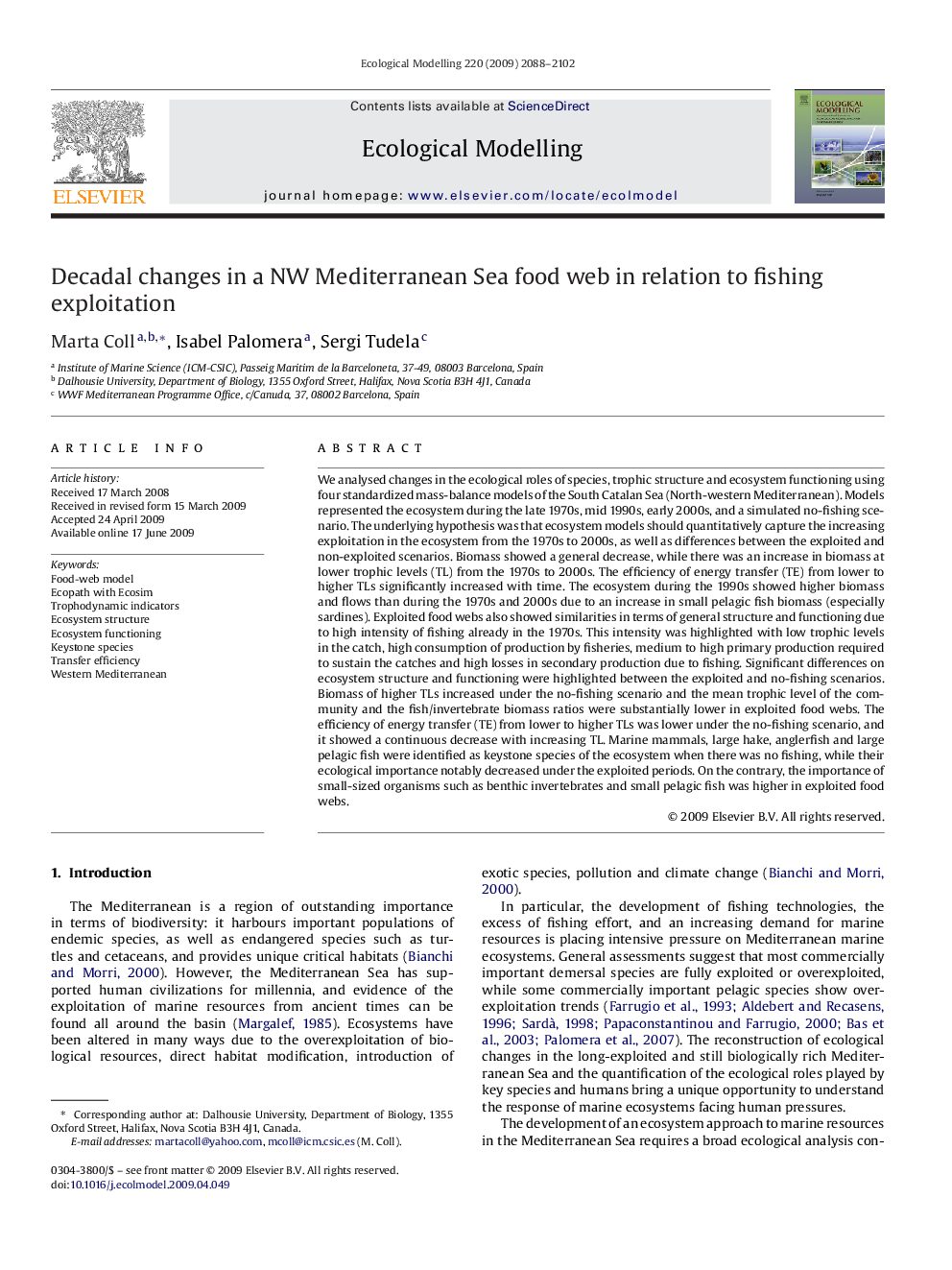| کد مقاله | کد نشریه | سال انتشار | مقاله انگلیسی | نسخه تمام متن |
|---|---|---|---|---|
| 4377769 | 1303444 | 2009 | 15 صفحه PDF | دانلود رایگان |

We analysed changes in the ecological roles of species, trophic structure and ecosystem functioning using four standardized mass-balance models of the South Catalan Sea (North-western Mediterranean). Models represented the ecosystem during the late 1970s, mid 1990s, early 2000s, and a simulated no-fishing scenario. The underlying hypothesis was that ecosystem models should quantitatively capture the increasing exploitation in the ecosystem from the 1970s to 2000s, as well as differences between the exploited and non-exploited scenarios. Biomass showed a general decrease, while there was an increase in biomass at lower trophic levels (TL) from the 1970s to 2000s. The efficiency of energy transfer (TE) from lower to higher TLs significantly increased with time. The ecosystem during the 1990s showed higher biomass and flows than during the 1970s and 2000s due to an increase in small pelagic fish biomass (especially sardines). Exploited food webs also showed similarities in terms of general structure and functioning due to high intensity of fishing already in the 1970s. This intensity was highlighted with low trophic levels in the catch, high consumption of production by fisheries, medium to high primary production required to sustain the catches and high losses in secondary production due to fishing. Significant differences on ecosystem structure and functioning were highlighted between the exploited and no-fishing scenarios. Biomass of higher TLs increased under the no-fishing scenario and the mean trophic level of the community and the fish/invertebrate biomass ratios were substantially lower in exploited food webs. The efficiency of energy transfer (TE) from lower to higher TLs was lower under the no-fishing scenario, and it showed a continuous decrease with increasing TL. Marine mammals, large hake, anglerfish and large pelagic fish were identified as keystone species of the ecosystem when there was no fishing, while their ecological importance notably decreased under the exploited periods. On the contrary, the importance of small-sized organisms such as benthic invertebrates and small pelagic fish was higher in exploited food webs.
Journal: Ecological Modelling - Volume 220, Issue 17, 10 September 2009, Pages 2088–2102